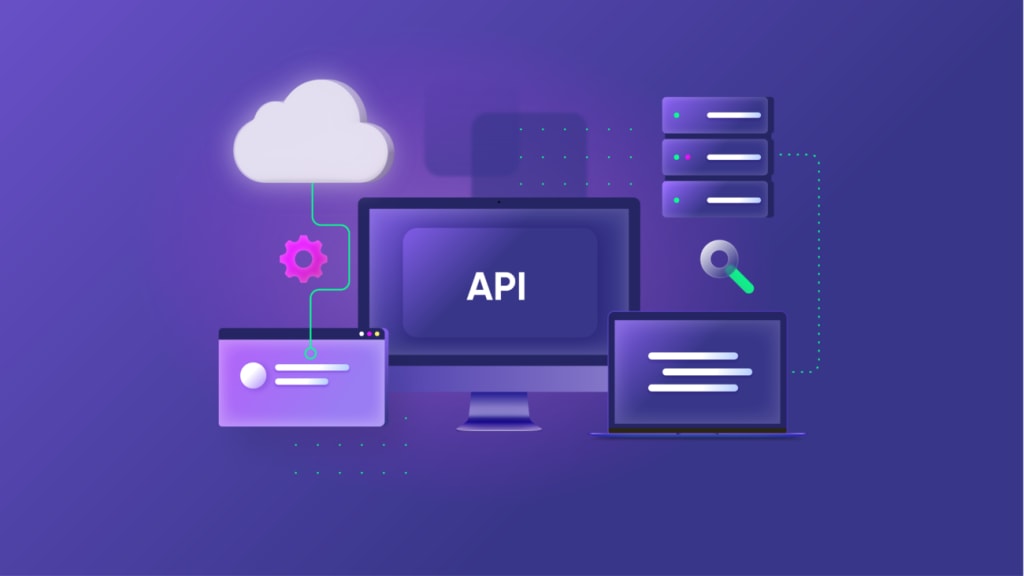
Exordium...
In today's interconnected world, Application Programming Interfaces (APIs) play a vital role in enabling seamless communication and integration between various software systems and services. API keys, also known as authentication tokens or access keys, are a critical component of API security and functionality. In this blog post, we will delve into the world of API keys, exploring their purpose, importance, best practices for implementation, and how they contribute to a more secure and efficient development process.
Understanding API Keys:
API keys are unique identifiers that developers use to authenticate and authorize access to an API. They serve as a security mechanism to ensure that only authorized entities can access protected resources. API keys typically consist of a long string of alphanumeric characters and are associated with specific API endpoints, applications, or users.
The Purpose and Benefits of API Keys:
API keys serve multiple purposes. Firstly, they provide authentication and authorization, validating the identity of the user or application attempting to access the API. This ensures that only authorized parties can interact with protected resources. Secondly, API keys enable access control, allowing developers to manage access privileges and define which resources or operations are available to different users or applications. Additionally, API keys facilitate usage tracking and analytics, providing insights into how the API is being utilized. They can also be used for monetization and billing purposes, tracking usage to enable businesses to offer tiered plans or charge based on usage.
Implementing API Keys:
Effective implementation of API keys involves several important factors. Firstly, key generation should be secure, using cryptographically strong algorithms to ensure uniqueness and minimize the risk of unauthorized access. Key management is crucial, including secure storage, periodic key rotation, and revocation when keys are no longer needed. API keys should be transmitted over secure channels (e.g., HTTPS) to prevent interception and securely stored on the server side, encrypted if necessary. Rate limiting and throttling can be enforced using API keys to prevent abuse and ensure fair usage. Additionally, IP whitelisting and blacklisting can enhance security by associating API keys with specific IP addresses.
Best Practices for API Key Security:
To maximize API key security, it is recommended to encrypt or hash API keys when storing them, preventing exposure even in the event of a data breach. Implementing Two-Factor Authentication (2FA) adds an extra layer of authentication, enhancing the security of API key-based authentication. Regular monitoring and auditing of API key usage help identify and address potential vulnerabilities. Educating developers and users about API key security is also crucial, emphasizing the importance of keeping keys confidential and avoiding key leakage.
API Key Management Solutions:
Various API management platforms and solutions offer robust features for API key management. These solutions simplify the management and monitoring of API keys, providing a centralized platform for developers and administrators to handle key-related tasks. They often include key generation, rotation, revocation, analytics, and access control features, enabling organizations to streamline API key management and enhance overall security.
To Sum Up
API keys are a fundamental aspect of secure and efficient API integration. By properly implementing and managing API keys, developers can ensure secure access to their APIs, protect sensitive data, and streamline the integration process for their users. Staying updated with best practices and leveraging API management solutions can further enhance API key security and overall application security. With the right approach, organizations can build robust and secure APIs that foster innovation, streamline integration, and protect critical data.
API keys are a crucial element in securing and optimizing API interactions. By understanding their purpose and implementing best practices, developers can enhance the overall security and efficiency of their APIs.
However, it is important to note that API keys alone may not provide foolproof security. Additional security measures, such as encryption, rate limiting, and user authentication, should be implemented in conjunction with API keys to create a layered defense against potential threats.
Furthermore, as technology advances and new security risks emerge, it is essential to stay updated with the latest security practices and continuously evaluate and improve API key management processes. Regular audits, monitoring, and education on API key security are vital to ensure the ongoing protection of sensitive data and resources.
As APIs continue to play a central role in the digital landscape, organizations must prioritize the implementation of robust API key management solutions. These solutions offer centralized control and monitoring, making it easier to generate, rotate, revoke, and track API keys. They also provide valuable analytics and insights into API usage patterns, enabling businesses to optimize their APIs and make informed decisions about resource allocation and monetization strategies.
Ultimately, API keys are not just random strings of characters; they are the gateway to secure and seamless integration. By implementing API key best practices, organizations can build trust with developers and users, safeguard sensitive data, and create a foundation for reliable and efficient API-driven solutions.
As the technological landscape evolves, the importance of API security cannot be overstated. Embracing robust API key management practices will not only protect sensitive data but also foster innovation, collaboration, and the growth of interconnected systems in an increasingly digital world.
Additionally, API key security is not only the responsibility of developers and API providers but also the users and consumers of APIs. Users must ensure they handle API keys securely and follow best practices to prevent unauthorized access or leakage. This includes keeping API keys confidential, avoiding sharing them openly or storing them in insecure locations.
API key security is a shared responsibility, and collaboration between developers, API providers, and users is crucial in maintaining a secure ecosystem. Regular communication, education, and awareness campaigns can help promote a culture of security and ensure that all stakeholders understand the significance of protecting API keys.
Furthermore, as the API landscape evolves, alternative authentication mechanisms such as OAuth 2.0 and token-based authentication are gaining popularity. These mechanisms provide enhanced security and flexibility compared to traditional API keys. It is essential for developers and API providers to stay informed about the latest authentication methods and consider adopting them where appropriate.
Lastly, it is worth mentioning that while API keys are an effective means of securing API access, they should not be considered a standalone security solution. Other security measures, such as secure coding practices, input validation, encryption of sensitive data, and robust firewall configurations, should also be implemented to create a comprehensive security posture for APIs.
API keys are indispensable in securing and streamlining API integration. By understanding their purpose, implementing best practices, and leveraging API management solutions, developers and organizations can ensure the confidentiality, integrity, and availability of their APIs. API key security is a continuous process that requires ongoing attention, adaptation to evolving threats, and collaboration among all stakeholders. With a proactive and holistic approach to API key security, businesses can build trust, foster innovation, and create a foundation for secure and efficient API-driven ecosystems.






Comments
There are no comments for this story
Be the first to respond and start the conversation.